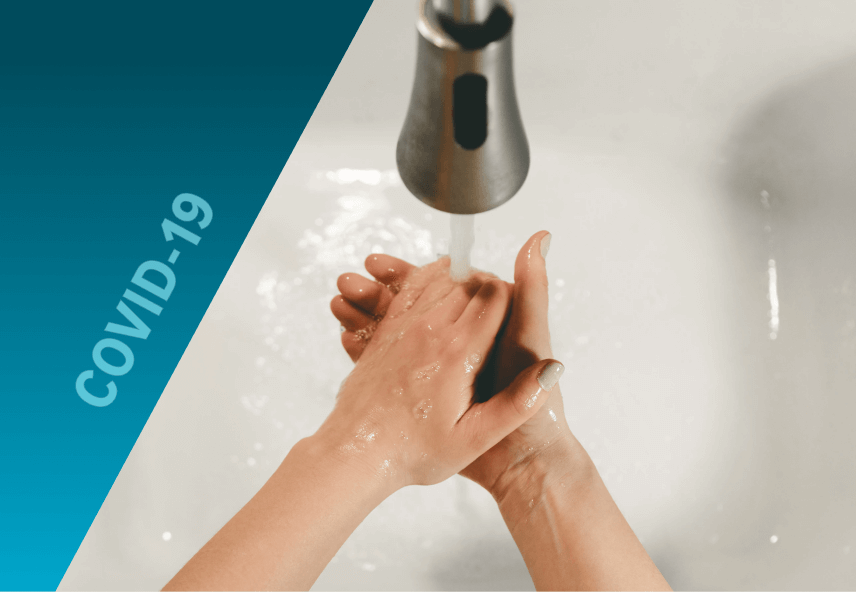What should the epilepsy community know about the coronavirus outbreak?
We care deeply about the well-being of our community, and we urge everyone to follow best practices as outlined by their local officials to stay safe and healthy during this time.

While there is no evidence of increased risk of coronavirus infection in people with epilepsy compared to the general population, the risk is increased in people with weakened immune systems, older people, and those with long-term conditions like diabetes, cancer and chronic lung disease.
In general, the best way to protect yourself or your family members looks very similar to best practices for all people to prevent other viral illnesses, such as seasonal flu.
Healthy habits can help protect you and your family. This includes good hand washing, limiting contact with people who are sick and keeping an appropriate distance from others.
To help prevent coronavirus, the CDC recommends:
CLEAN YOUR HANDS OFTEN
- Wash your hands often with soap and water for at least 20 seconds especially after you have been in a public place, or after blowing your nose, coughing, or sneezing.
- If soap and water are not readily available, use a hand sanitizer that contains at least 60% alcohol. Cover all surfaces of your hands and rub them together until they feel dry.
- Avoid touching your eyes, nose, and mouth with unwashed hands.
AVOID CLOSE CONTACT
- Avoid close contact with people who are sick
- Put distance between yourself and other people if COVID-19 is spreading in your community. This is especially important for people who are at higher risk of getting very sick.
STAY HOME IF YOU ARE SICK
- Stay home if you are sick, except to get medical care. Learn what to do if you are sick
COVER COUGHS AND SNEEZES
- Cover your mouth and nose with a tissue when you cough or sneeze or use the inside of your elbow
- Throw used tissues in the trash.
- Immediately wash your hands with soap and water for at least 20 seconds. If soap and water are not readily available, clean your hands with a hand sanitizer that contains at least 60% alcohol.
WEAR A FACEMASK IF YOU ARE SICK
- If you are sick: You should wear a facemask when you are around other people (e.g., sharing a room or vehicle) and before you enter a healthcare provider’s office. If you are not able to wear a facemask (for example, because it causes trouble breathing), then you should do your best to cover your coughs and sneezes, and people who are caring for you should wear a facemask if they enter your room. Learn what to do if you are sick.
- If you are NOT sick: You do not need to wear a facemask unless you are caring for someone who is sick (and they are not able to wear a facemask). Facemasks may be in short supply and they should be saved for caregivers.
CLEAN AND DISINFECT
- Clean AND disinfect frequently touched surfaces daily. This includes tables, doorknobs, light switches, countertops, handles, desks, phones, keyboards, toilets, faucets, and sinks.
- If surfaces are dirty, clean them: Use detergent or soap and water prior to disinfection.
If you have epilepsy or are caring for someone who has epilepsy, it’s important to be prepared:
Epilepsy Alliance America encourages families to always be prepared for potential emergencies. Here are a few recommendations:
- Discuss creating an Emergency Supply of Prescription Medicines with your Health Care Provider – this should include all medicines that you are currently being prescribed (including rescue medication)
- Review and update as necessary, your Seizure Action or Response Plan. Keep your plan, medications and important documents in one place.
- If you are experiencing trouble with your supply of medicine, please contact your health care provider and your local pharmacy immediately.
If someone in your home does become ill:
If you or a loved one develops COVID-19 and notice changes in seizures, contact your epilepsy health care provider, as well as your primary care provider. The CDC also offers guidance for caregivers in the home environment if flu-like symptoms develop.
There is no information about coronavirus triggering seizures in people with epilepsy. However, infections, fever (particularly in children), sleep deprivation and in general being unwell can trigger seizures in some people with epilepsy, and you should have an up-to-date plan for managing breakthrough seizures. If medications are involved in this plan, you should ensure that you have a supply of these medications on hand, with expiration dates at least six months away.
The doctors involved in treating you might recommend antivirals, antibiotics or other specific treatment. Occasionally these may interact with your anti-epileptics, reducing their effectiveness or causing side effects. Always let doctors treating you know that you are taking anti-epileptic medications by providing them with your full list of medications.
If you have any questions, please contact EAA
1-800-642-0500
